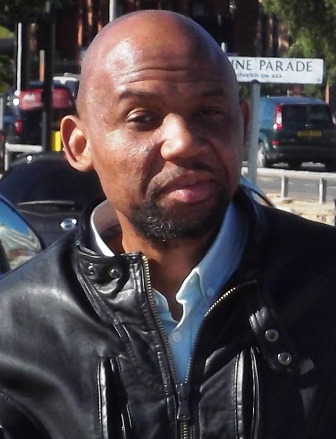By: FEMI OWOEYE

About six weeks after Volkswagen AG confessed in the United States that millions of its brands contained software that could cheat pollution tests, Nigeria’s Consumer Protection Council (CPC) issued a seven-day ultimatum to the Volkswagen Nigeria to provide information on the status of its vehicles in relation to the emissions cheating software.
It also requested the company to, within seven days of the receipt of its letter, make available to it the number of affected vehicles in Nigeria (if any), steps taken to inform and sensitise consumers and efforts being made to facilitate quick recall of such vehicles in the country.
While that action is in line with the council’s constitutional assignment, its timing is questionable, belated and somehow phoney.
The scandal came to light mid-September. After a month without any response from the Federal government, SERAP, in a letter dated 14th October 2015, requested President Buhari “to investigate Volkswagen’s business in Nigeria to see if cars sold to Nigerians rigged carbon emissions data and potentially in breach of human rights, including the rights to life, health and a general satisfactory environment.”
Story about SERAP’s letter was published in the October 19th edition of Motoring World. Same day, Engr. Aminu Jalal, Director General of National Automotive Design and Development Council (NADDC), responded with clear and credible explanations: “The VW cheating on diesel car emissions would not have a significant impact on Nigeria, because of the following:
- Only about 1% of our cars have diesel engines.
- VW authorized dealers do not sell diesel cars as diesel costs more than petrol in Nigeria.
- The available diesel cars were imported as used vehicles.
- Diesel trucks and buses are not affected.
- Our vehicle emission standards are at Euro 2 level. We could not have stricter standards as our diesel Sulphur standards, at 3,000 ppm (parts per million), could not support higher standards. We need to reduce Sulphur levels to 50 ppm.
- We are working with the Standards Organisation of Nigeria (SON) and other stakeholders to that effect.”
From that foregoing explanation, it is clear that VW Nigeria does not deal in diesel cars and so could not be accused of any wrong doing.
News about Jalal’s reaction on behalf of FG came out in the 26th October’s edition of Motoring World. Could it, therefore, be a coincidence that CPC’s letter to Volkswagen Nigeria was also dated 26th October 2015?
Given the content of both letters and dates of dispatch, it was obvious that CPC’s query to Volkswagen Nigeria was motivated by SERAP’s letter to the presidency. One would have expected CPC to act while other similar bodies around the world were expressing concern over the effect the scandal could have on their citizens, not after NADDC had cleared dust over the issue.
Had CPC sent its query to VON Nigeria last week, it would have been more sensible and showed that the council is in touch with consumer-related developments around the world. For during the week, VW AG revealed discrepancies about 800,000 of its petrol cars. With that, it makes sense to expect Volkswagen Nigeria to provide some explanations, since its petrol cars are assembled from SKD components imported from VW AG. Even at that, CPC ought to realize that it would be unnecessary to sanction VON Nigeria at the end of the day, because, the emission deceit in question would only defeat emission standard in countries operating under Euro 5 and not in Nigeria, which is on Euro 2. According to Jalal’s document, which I have confirmed to be true, Nigerian fuel still contains high level of sulfur. Nigeria can not, for now, have a better standard until we filter out sulfur from our fuel, which is not a responsibility of VON Automobile Nigeria Limited.
Second, the council should not have waited until SERAP gave FG an ultimatum, which it quickly transferred to Volkswagen Nigeria, despite the fact that NADDC had already cleared the air. Obviously, if not for SERAP’s action, the council would have taken no action as usual, because far more serious consumer-related problems had occurred in the past and no comment or action emanated from CPC. Or what could be more serious than when 100s of millions of vehicles were recalled worldwide, due to killer airbags? Just like the emission scandal, it was found out by a group of researchers in the US. No statement came from Nigerian marketers of affected brands, except Toyota Nigeria Limited? And the authority responsible for protecting consumers of such vehicles was probably unaware, for it said nothing!
It started early this year. Takata, an Asian company, which makes Airbags for most major automobile manufacturers around the world, confessed to have been using Ammonium nitrate (a chemical which is known to explode with too much force, blowing apart a metal inflator and sending sharp metal objects into the passenger compartment) as inflator propellant of its Airbags. As a result, whenever an accident occurs, rather than deploying normally, Ammonium Nitrate-filled Takata airbag would explode and send out into passenger compartment, shards of metals, which could hit driver or other occupant of the vehicle on forehead, eyes or neck, causing serious injury, shock and even death. Impliedly, many innocent lives around the world, including Nigeria, would have been lost in auto crash, which ordinarily would not have been fatal. Unfortunately, Nigerian relevant authorities (FRSC and the police) do not carry out post accident analysis. All accidents are simply attributed to tyre failure, over-speeding or carelessness.


Although other popular brands were affected by the killer Takata airbags, only Toyota Nigeria Limited announced recalls of some of its models. Till date, no one is helping Nigerian motorists, who are proudly cruising about in imported used vehicles with Takata time bombs. Over 200,000 such vehicles are

imported into Nigeria yearly as tokunbo, high percentage of which comes from the US and Europe. Many of them have been recalled for Takata airbags problem. Even when franchise dealers of such brands take no action, CPC’s query could have been timely and sensitized users of such vehicles to understand the danger at stake.
Indications, therefore, are that lives of some hundreds of thousands of motorists in Nigeria and other African nations are being exposed to daily possibility of fatal accidents resulting from airbag “bomb explosion”.
Of course, maker of the killer airbags claimed to have suspended use of the killer chemical for production of airbags, good number of affected vehicles exported to developing nations as second hand may never be returned for amendment until someone or owner get killed just like Ashley Parham, 18, from Oklahoma City, who, in 2009, was killed in a minor parking lot accident, while picking up her brother at school. Parham suffered a gaping cut to her neck from shrapnel shot from a 2001 Honda Accord’s Takata air bag.
In 2009, Gurjit Rathore, 33, Virginia mother of three, reportedly, died in a Honda Accord, after the car’s air bag exploded in her face, severing arteries in her neck and causing her to bleed to death.
Devin Xu, 47, from Rosemead, Calif was reportedly killed in 2013, while driving a 2002 Acura TL sedan in a parking lot. The coroner’s report cited “facial trauma due to foreign object inside airbag” as the cause of death.
In July 2014, Law Suk Leh, a 43-year-old, Malaysian woman, in her final week of pregnancy, when, was killed by exploding shrapnel, after hitting another car with her 2003 Honda Civic. Post mortem report showed she died from a “severe puncture wound on the neck.”
Hien Tran, a 51-year-old Orlando woman, driving a 2001 Honda Accord, was said to have died in October 2014, after her car was involved in an accident in late September. Shards from the ruptured Takata-made air bag killed her, according to her autopsy report, which cited plastic and metal fragments throughout the car’s driver compartment.
One can go on and on with examples from countries, where authorities go beyond picking up corpses of accident victims. Unfortunately, Nigeria has not got records of victims. Whenever an accident occurs, the police or FRSC, who are most likely to know the cause of accident, do not bother to find out the cause of victims death. They do not do post-accident analysis and proper post-mortem on victims to know the real cause of their death or injuries. CPC will do the nation a lot of good, looking into this and more, go beyond making a scapegoat out of the nation’s recently revived assembly plant.
CPC is expected to keep tab on dangerous consumer-related issues like the Takata killer airbags and act or react on time, not waiting till a SERAP petitions the federal government.





